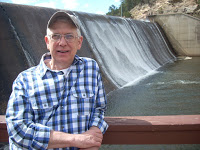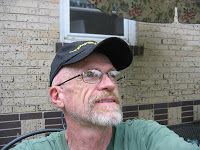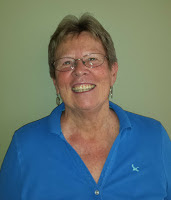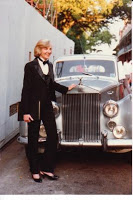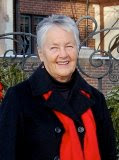For most of my life, choirs were my life. They were the musical thrills of my childhood and much of my adulthood. They were the place I felt most at home. They were the groups I most enjoyed being with. They were the main medium of my musical life. They were the focus of my extra time. They were the preoccupation of my auditory mind. They were the organizations I most effectively led. They were my access to a sense of worship. They were the most fulfilling aspect of thirty years of my ministry in the church. Choirs made everything else tolerable. They were the artistic center of my life.
I got my first choir when I was eighteen years old, a small group of volunteer singers who rehearsed one hour on Sunday evenings in preparation for the very simple needs of the First Baptist Church, Wamego, Kansas. But my relationship with choirs reached back to my first weeks of life, for I am sure I was present at church the first Sunday after my birth. Surely mom sat with me cradled in her arms in the second pew on the west side of the sanctuary while Dad played the organ for the service and my two older sisters sang the hymns. I’m sure I heard the choir sing and wonder if the harmonies were fixed in my ear from that first weekend’s experience. I wouldn’t be surprised for I could hardly contain my excitement when I joined the junior choir at that same church some years later. Although I was a good all-around student, my favorite times in school related to music class. There I learned songs. There I sang. There I played rhythm instruments. There I learned my first solo and when I had finished singing it for the PTA members, turned around and conducted the rhythm band in a Saint Patrick’s Day repeat of “McNamara’s Band.” My first solo, my first effort at conducting; I was so pleased.
Choirs took me to more than PTA and church. They took me to music festivals, to competitions, on tours, and they introduced me to many people. Choirs gave me opportunities to sing a wide variety of music: age-old classics, modern jazz arrangements, long works with orchestra, anthems with organs, motets unaccompanied, folk song arrangements, and unusual hymns. They introduced me to the musicianship and leadership of many choral directors from around the United States.
Leading choirs balanced my work needs. In my ministerial career I always had many more responsibilities in addition to the music. I looked after hospitalized folk, planned educational activities for groups of all ages, organized Sunday schools, trained teachers and leaders, encouraged youth workers, met with the staff of several congregations, supported the work of Senior ministers, directed residential summer camps, developed curriculum plans and wrote the resources, listened to people’s problems, handed out food to the needy, on and on. As an associate minister, I often administrated programs that were more related to other people’s ideas and visions rather than my own. The choir gave me a mid-week balance, for during rehearsals I could tell people to sit up, stand up, sit down, turn to page two, start singing at measure 36, modify their vowels, make lots of noise, sing softly, or completely shut up. Whatever needs I had to do things my way got satisfied during those mid-week rehearsals. I worked with the singers’ pitch, rhythm, sense of meter, phrasing, and general understanding of the music we performed. I elicited musicianship and artistic satisfaction from people who often didn’t have that much to offer. I sought always to make my singers better musicians. I helped them understand the needs of liturgy in a non-liturgical church. And I had fun. We had fun as artists together. Working with musical ensembles—whether made up of children, youth, adult, or seniors, whether signers or bell ringers, or the musical cast of a drama, or duets, trios, or quartets—brought me deep joy.
They also became my personal monitor. I had enjoyed a long, joyous, creative ministry in churches but knew it was time to quit when I started not wanting to go to my choir rehearsals, when I was no longer satisfied with those two or three in-tune measures or phrases, when I was no longer thrilled at the stumbling attempts of my earnest singers, when I was worn out rather than wafted on the wings of a dove. I continued working hard for a few months more, making music up to the last minute, then left.
I didn’t know what my life would be when I quit just before my fifty-first birthday, but I moved away from church music. I still like the sounds. I still can feel some kind of inspiration when hearing choral music, organ voluntaries, and massed choruses with orchestras. I still float along well turned phrases and salivate over delicious mellismas. I have the feelings; I just don’t need the work. Choirs still move me though now I rarely hear them perform. It’s the result of a change in life, but one I don’t regret. The choral spirit still abides in me, so much so that if this reading were the end of yet another choir rehearsal, we’d stand, sing an Amen, and go home.
Denver © 2013
About the Author
Phillip Hoyle lives in Denver and spends his time writing, painting, and socializing. In general he keeps busy with groups of writers and artists. Following thirty-two years in church work and fifteen in a therapeutic massage practice, he now focuses on creating beauty. He volunteers at The Center leading the SAGE program “Telling Your Story.”
He also blogs at artandmorebyphilhoyle.blogspot.com
